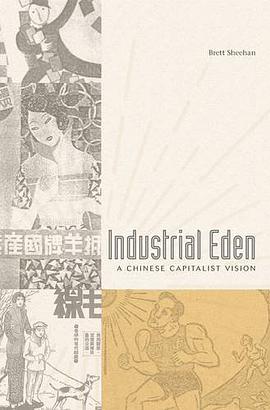Industrial Eden
豆瓣
A Chinese Capitalist Vision
Brett Sheehan
简介
This illuminating study of the evolution of Chinese capitalism chronicles the fortunes of the Song family of North China under five successive authoritarian governments. Headed initially by Song Chuandian, who became rich by exporting hairnets to Europe and America in the early twentieth century, the family built a thriving business against long odds of rural poverty and political chaos.
A savvy political operator, Song Chuandian prospered and kept local warlords at bay, but his career ended badly when he fell afoul of the new Nationalist government. His son Song Feiqing inspired by the reformist currents of the May Fourth Movement developed a utopian capitalist vision that industry would redeem China from foreign imperialism and cultural backwardness. He founded the Dongya Corporation in 1932 to manufacture wool knitting yarn and for two decades steered the company through a constantly changing political landscape the Nationalists, then Japanese occupiers, then the Nationalists again, and finally Chinese Communists. Increasingly hostile governments, combined with inflation, foreign competition, and a restless labor force, thwarted his ambition to create an Industrial Eden.
Brett Sheehan shows how the Song family engaged in eclectic business practices that bore the imprint of both foreign and traditional Chinese influences. Businesspeople came to expect much from increasingly intrusive states, but the position of private capitalists remained tenuous no matter which government was in control. Although private business in China was closely linked to the state, it was neither a handmaiden to authoritarianism nor a natural ally of democracy."
contents
Introduction
1. The Warlord State and the Capitalist-Politician
2. The Prewar Nationalists’ Uncertain Developmental State
3. Building Eden outside the Firm with National Products and Urban Consumerism
4. Japanese Occupation and the “Economy of Things”
5. Building Eden inside the Firm
6. The Postwar Nationalists’ Unresponsive Developmental State
7. The People’s “New Democratic” Developmental State
8. Industrial Eden’s Legacy under Socialist Development
Conclusion
Glossary of Chinese and Japanese Characters and Names
Notes
Bibliography
Acknowledgments
Index